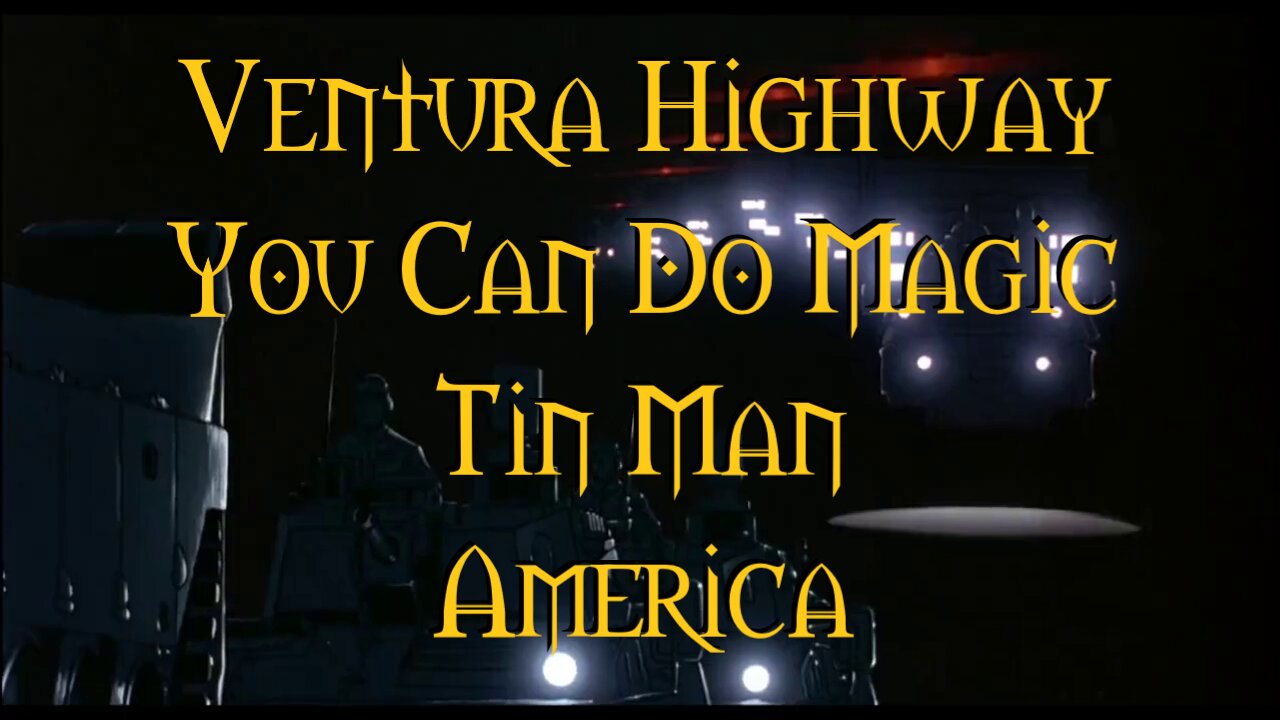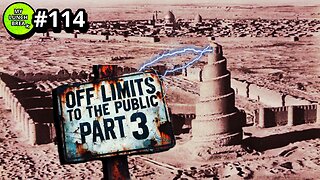Premium Only Content

Ventura Highway You Can Do Magic Tin Man America
Ventura Highway Album: Homecoming (1972)
You Can Do Magic Album: View from the Ground (1982)
Tin Man Album: Holiday (1974)
by America
America member Dewey Bunnell wrote this song. In an interview with the Los Angeles Times October 1, 2006, he explained: "It was 1963 when I was in seventh grade, we got a flat tire and we're standing on the side of the road and I was staring at this highway sign. It said 'Ventura' on it and it just stuck with me. It was a sunny day and the ocean there, all of it."
Bunnell's father was in the Air Force and was stationed at Vandenberg Air Force Base near Santa Barbara. They were on a trip in the Oxnard area of southern California when they got stranded.
Regarding the lyrics, "Seasons crying no despair, alligator lizards in the air," Bunnell said: "The clouds. It's my brother and I standing there on the side of the road looking at the shapes of clouds while my dad changed the tire."
There's no official "Ventura Highway," but Ventura is a county in California, and Highway 101 runs through it.
In Walk on By: The Story of Popular Song, Dewey Bunnell explained: "I remember vividly having this mental picture of the stretch of the coastlines traveling with my family when I was younger. Ventura Highway itself, there is no such beast, what I was really trying to depict was the Pacific Coast Highway, Highway 1, which goes up to the town of Ventura."
Songwriting credits on America's songs were typically assigned to whoever came up with the idea, and that person would be the one who sings on the track. The entire band often made some contributions to the compositions, however, and while Dewey Bunnell gets solo songwriting credit on this song, he did get some help. The band's other primary songwriter, Gerry Beckley, told us: "the guitar lick on 'Ventura Highway' is something that Dan [Peek] and I put together that really wasn't a part of the song. The song is of course, super strong on its own. We had a friend back in England, when he heard it with the guitar lick, he said, 'Oh, you've ruined it!'"
Long before Prince used it, America incorporated the phrase "Purple Rain" into a lyric, as they sing here:
Wishin' on a falling star
Waitin' for the early train
Sorry boy, but I've been hit by purple rain
In this context, the purple rain could be ambition, as the character in the song is ready to move on.
Janet Jackson interpolated this on her 2001 hit "Someone To Call My Lover." She had never heard "Ventura Highway," but loved the idea when her producers Jimmy Jam and Terry Lewis played it for her and suggested they use it as the basis for a song.
You Can Do Magic is about a skeptic who doesn't believe in love until he meets a girl who shows him it's real.
Until Peek's departure, the band always wrote their own songs, composing separately with the writer also taking lead vocals. When they found themselves hitless, Beckley and Bunnell started accepting songs from outside writers, including Russ Ballard, who wrote a track on their 1980 album Alibi called "I Don't Believe in Miracles." For their next album, View from the Ground, Ballard gave them "You Can Do Magic," and with a lead vocal by Gerry Beckley, it returned America to the charts.
"It fit right into our body of work," Beckley told us. "It was a huge hit and a turning point for us, because it was a hit for Dewey and I, after Danny departed. It was our first hit as a duo."
A key component in this song is the "do do do do do do" vocal break, which Russ Ballard put into the song specifically to suit America, whose two vocalists could create a nice harmony. This part was a nod to the Crosby, Stills & Nash song "Suite: Judy Blue Eyes," which contains a similar section.
America was the trio of Dan Peek, Gerry Beckley and Dewey Bunnell until Peek left in 1977, leaving them as a duo. They wrote separately and split lead vocal duties: whoever wrote the song would sing it.
"Tin Man" was written by Bunnell, and Beckley would like you to know that its themes extend well beyond the movie. "There are so many other beautiful lyrical twists in that song, so it's not fair to simplify it as just a song about The Wizard of Oz," he said in his Songfacts interview. "To a surrealist, it's like a Dali painting."
For their fourth album Holiday, they brought in a ringer: George Martin. The Beatles producer was known for keeping up a faster pace in the studio than America was used to, so the band adjusted accordingly, making sure they were prepared for the sessions. This brought a new focus to the band, and the session were done in 13 days. "Tin Man," released as the lead single, was a solid hit and brought America back to the limelight.
Regarding the line, "The tropic of Sir Galahad," Sir Galahad is a knight of legend in King Arthur's court, but what he has to do with a tropic is not clear. Like many of the references in this song, Dewey Bunnell used poetic license to create them, as they kept the song flowing and added intrigue.
-
 16:48
16:48
Psychological operations
6 days agoBad Moon Rising Up Around The Bend Long As I Can See The Light Susie Q CCR
1261 -
 LIVE
LIVE
Tundra Tactical
1 hour ago $0.04 earnedLuis Valdes Of GOA Joins The Worlds Okayest Firearms Live Stream!!!
496 watching -
 LIVE
LIVE
Man in America
9 hours agoAre Trump & Musk the COUNTER-ELITES? w/ Derrick Broze
1,323 watching -
 LIVE
LIVE
DLDAfterDark
48 minutes agoDLD Live! SHTF Handguns! Which Would You Choose?
340 watching -
 1:50:38
1:50:38
Mally_Mouse
3 hours agoSaturday Shenanigans!! - Let's Play: Mario Party Jamboree
21.2K -
 1:13:00
1:13:00
Patriots With Grit
7 hours agoWill Americans Rise Up? | Jeff Calhoun
15.9K9 -
 14:55
14:55
Exploring With Nug
7 hours ago $6.61 earnedWe Found Semi Truck Containers While Searching for Missing Man!
36.6K5 -
 27:57
27:57
MYLUNCHBREAK CHANNEL PAGE
15 hours agoOff Limits to the Public - Pt 3
71.1K54 -
 38:07
38:07
Michael Franzese
7 hours agoLeaving Organized Crime and Uncovering Mob in Politics: Tudor Dixon and Michael Franzese
49.5K14 -
 2:42:54
2:42:54
Jewels Jones Live ®
2 days agoAMERICA IS BACK | A Political Rendezvous - Ep. 111
52.6K42